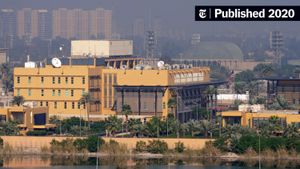Delhi is under siege from air pollution, and the Supreme Court is feeling the heat. On Tuesday, Chief Justice of India Sanjiv Khanna responded to the deteriorative air quality by permitting judges to conduct proceedings virtually whenever feasible. The decision, discussed during court sessions, reflects the gravity of the air quality crisis plaguing the national capital and its adjacent regions.
Concerned voices from the legal community, including senior advocates and the President of the Supreme Court Bar Association, Kapil Sibal, raised alarms about the worsening smog, arguing for urgent measures. Sibal highlighted, “Pollution is getting out of control,” pushing for directives to extend virtual hearings to alleviate the burden on lawyers and court staff commuting daily to the court. With air quality dipping drastically, the push for online hearings echoes wider fears about health risks amid hazardous environments.
The alarming air quality index (AQI) readings—some areas even surpassing the 500-mark—served as the backdrop for these discussions. The AQI was recorded at 484 at 8 AM on Monday, marking it as one of the worst this season. Solicitor General Tushar Mehta suggested the court should adopt virtual hearings as standard practice, allowing legal professionals to work without risking their health. Despite the recommendations, Chief Justice Khanna made it clear: virtual hearings would be optional, fostering flexibility for lawyers.
During the exchanges, Gopal Sankaranarayanan, another notable advocate, emphasized the logistical struggle, noting approximately 10,000 lawyers and their clerks converge on the Supreme Court each day, often relying on personal vehicles. CJI Khanna acknowledged the idea of facilitating online hearings but reiterated the court’s position of not going entirely online, assuring, “If anybody wants to be online, they can.” The high court's response reflects not only health concerns but also accessibility and operational efficiency amid environmental challenges.
While existing measures under the Graded Response Action Plan (GRAP-IV) are firmly set, limiting vehicular movement, halting construction activities, and enforcing work-from-home mandates for various industries, the judiciary remains absent from these restrictions, as highlighted during court arguments. Many legal professionals now find themselves operating within hazardous conditions due to the lack of direct directives affecting the judiciary.
On the previous day, another Supreme Court bench extended pollution-reduction measures under GRAP IV, which includes halting construction work and modifying office attendance to reduce the number of vehicles on the road. Specific directives now urge court staff to wear masks and adopt preventive health measures due to the hazardous air quality. The court's leadership hopes to balance operational efficiency with health and safety as the crisis continues to evolve.
The discussions at the Supreme Court echoed sentiments shared by many Delhiites who have faced this pollution crisis year after year, particularly during winter when air quality dips drastically due to multiple factors including stubble burning, vehicular emissions, and industrial discharge. The legal sector's response, during the court session, highlights the urgent need for comprehensive strategies addressing not just the law but public health amid deteriorative environmental conditions.
Virtual hearings, once adopted as a necessity during the pandemic, have become part of the legal fabric, showcasing the Supreme Court’s capability to adapt. The decision to allow virtual proceedings will inevitably change the dynamics of the judicial system, making it easier for legal professionals to navigate through threats posed by pollution on their daily routines. The burden of commuting can now be mitigated through technology, but only if lawyers opt for virtual attendance where practical.
This step is indicative of the judiciary’s recognition of air quality as not merely a public nuisance but a legitimate concern affecting access to justice. By allowing for virtual hearings, the Supreme Court paves the way for future adaptations, reinforcing the importance of flexibility without fully conceding to online formats. Whether this arrangement will be temporary or lead to lasting change remains to be seen, but the legal community is certainly taking this chance to advocate for stronger public health measures within the justice system.
Delhi's air pollution crisis often results from complex socio-political factors, requiring concerted efforts from various branches of governance to address the underlying causes, and reinforcing the long-discussed need for sustainable solutions. The judicial development inspires hope for other sectors facing similar challenges, as India continues to grapple with environmental issues threatening both health and economic stability.



